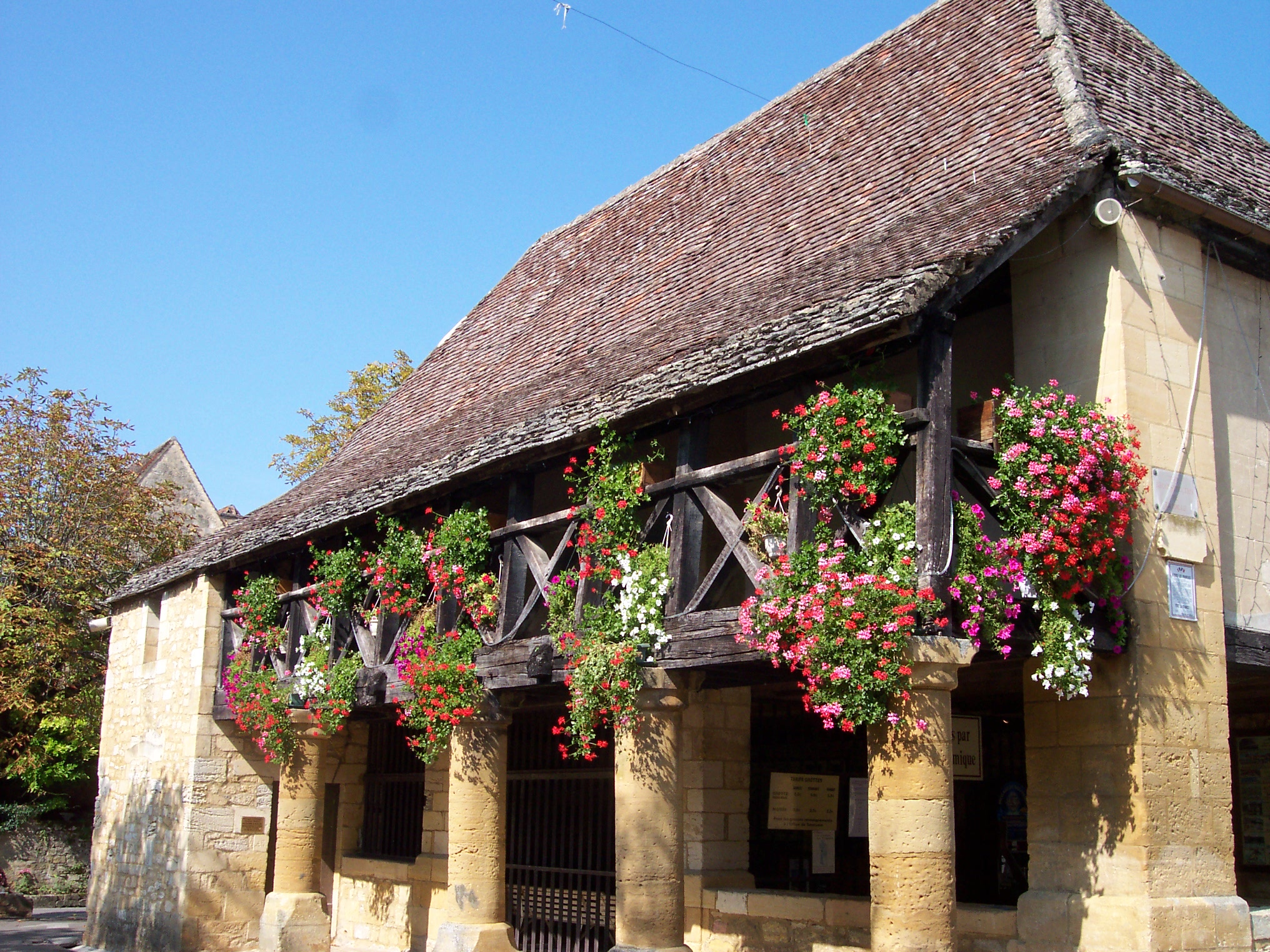| Introduction
La Maison

En France, le style des maisons change d'une région à une
autre. Par exemple, les maisons de style Provençal sont carrées et symétriques. Elles sont comme des petits manoirs
avec le toit qui dépasse et des
volets sur les fenêtres. Les maisons
de style Normand ont une tour centrale et la grange attachée à la maison principale. Après la Première
Guerre Mondiale, les soldats américains qui se
sont battus en France, ont rapporté ces
idées qui ont été modifiées pour mieux
refléter le style américain.
| carré/e |
square |
un volet |
a shutter |
un soldat |
a soldier |
| un manoir |
a manor |
une fenêtre |
a window |
se battre |
to fight |
| le toit |
the roof |
la grange |
the barn |
rapporter |
to bring back |
| dépasser |
to jut out over |
attaché/e |
attached to |
This unit covers the following:
- Reviewing uses of "en"
- Irregular verb vivre
- Difference between vivre and habiter
- Talking about your house and where things are located in your house; what things are used for in your house
- Adverbs
- Conditional
- Command form
- Comparative/Superlative
New concepts:
- The conditional to express desire
- The passive voice
- Giving and understanding directions
- Vocabulary about housing and related topics
- Cultural and historical issues
Doing the exercises
You should have a notebook especially for this class to take notes and
do your written exercises. Follow this sequence:
- Write down the exercise as you see it.
- Write the answers next to each question or fill in the blank.
- Check your answers by clicking on the link.
Let's review
some useful information.
Icon
Symbols
As you work,
you will see icon symbols that identify the kind of activity you are doing.
Click here to review what the symbols mean.
Accents
Don't forget
the accent marks when you turn in written assignments to your teacher.
You will be marked off if they are missing. Review
how to makes accent marks here.
Unit
Vocabulary
There are two dictionaries available to you from each page - French to
English and English to French. Just click on the word Dictionaries at
the top of the page.
Culture Focus
This unit will feature an overview of important characters from France's rich history from
the French Revolution through the First Empire under Napoleon Bonaparte.
We'll also be exploring Madagascar. You'll get lots of opportunities to
do research on the Internet to learn more about it.
Unit Activities
This unit offers a lot of different activities.
Make sure you do all of them! The activities listed below are graded.
The point values are in red.
- Section 1, Part A, Discussion; ton opinion: 8
points
- Section 1, Part B, TPR Quiz: 12
points
- Section 1, Part B, Writing; ta maison: 8
points
- Section 1, Part D, Writing; phrases: 12
points
- Section 1, Part E, Writing--Madagascar: 16
points
- Section 1, Part E, Projet: 5 points
- Section 1, Part F, Dictée; notre maison: 16
points
- Section 1, Quiz: 25
points
- Section 2, Part A, Writing; Napoléon Bonaparte: 16
points
- Section 2, Part C, Writing, et si?: 16
points
- Section 2, Part D, Projet: 5 points
- Section 2, Quiz: 20
points
- Section 3, Part A, Writing:
16 points
- Section 3, Part A, Speaking, un strophe récité
ou chanté: 16 points
- Section 3, Part D, Project: 5 points
- Section 3, Part D, Discussion; à faire ou ne pas faire: 8
points
- Section 3, Part E, Project Final: 20 points
- Section 3, Part E, Speaking: 10 points
- Section 3, Quiz: 20
points
- Unit Exam: 84
points
Practice makes perfect! Make sure you do the following activities every
day:
 Vocabulary
activities: practice the vocabulary using flashcards for at least
15 minutes a day. Vocabulary
activities: practice the vocabulary using flashcards for at least
15 minutes a day.
Verb conjugations: keep adding new verbs and their conjugations
to your verb sheet. Practice conjugating verbs every day.
En route! Clique ici pour commencer la leçon. |